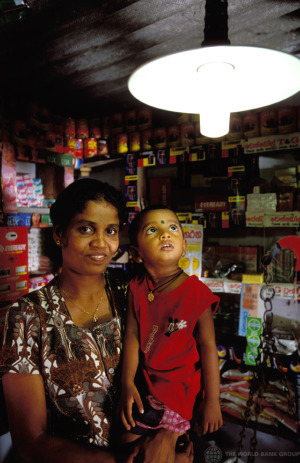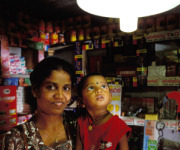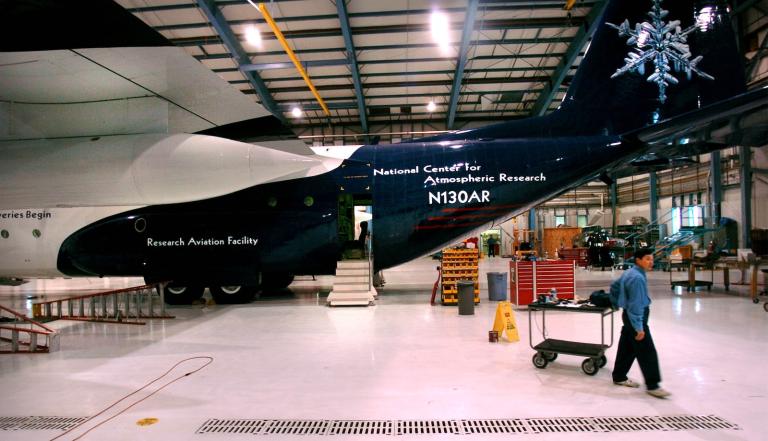 A World Bank project lit this Sri Lankan shop with solar. Unfortunately, the World Bank’s current energy lending portfolio remains heavily biased toward conventional fossil fuels.Photo: World BankTwo days ago in St. Louis, the head of the largest coal producer in the U.S., Peabody Energy’s Gregory H. Boyce, delivered the keynote address on “The Future of Fossil Fuels” at the Global Energy Future Symposium at Washington University in St. Louis. His message was to “put people first” by supporting policies that prioritize eliminating global energy poverty by 2050.
A World Bank project lit this Sri Lankan shop with solar. Unfortunately, the World Bank’s current energy lending portfolio remains heavily biased toward conventional fossil fuels.Photo: World BankTwo days ago in St. Louis, the head of the largest coal producer in the U.S., Peabody Energy’s Gregory H. Boyce, delivered the keynote address on “The Future of Fossil Fuels” at the Global Energy Future Symposium at Washington University in St. Louis. His message was to “put people first” by supporting policies that prioritize eliminating global energy poverty by 2050.
Similarly, at the World Energy Congress in Montreal last month, the plight of the poor was very much on everyone’s mind. Not that any of them was there to hear it, with admission to the conference running in the vicinity of $3,000 per person.
Nevertheless, speaker after speaker, from tar-sands related companies such as Enbridge, Suncor, and Exxon, emphasized the need to reduce “energy poverty” by improving access to reliable energy for the poor.
According to Peabody’s Boyce: “The greatest crisis we confront in the 21st century is not an environmental crisis predicted by computer models but a human crisis fully within our power to solve. Study after study — and pure common sense — tell us that access to electricity helps people live longer and better.”
Putting aside for the moment Boyce’s self-serving climate denial, it’s clear that he and other fossil fuel executives see their industries as the vehicles that will deliver the masses from darkness and poverty. It is tempting to dismiss the fossil fuel industry’s newfound concern for the global poor as the latest greenwashing ploy — and that’s undoubtedly true — but it’s also not the whole story.
Access to energy is a very real problem — on this point it seems that industry, environment, and development groups all agree. Globally, more than one out of every five people lacks access to electricity. Nearly two of every five still rely on wood and biomass for basic cooking and heating. Many of the people without access to modern energy services live in rural areas of sub-Saharan Africa and Asia. In many cases, these populations will be the same ones that face disproportionate climate change impacts to their agricultural and natural resource-based livelihoods. Increasing clean energy access is certainly key to confronting a host of development challenges.
The question is, how do you effectively address energy poverty? The World Bank, which is funded through tax dollars from the U.S. and other countries, is well placed to address energy access. Inscribed over the main entrance to the World Bank are the lofty words: “Our Dream, A World Without Poverty.”
The World Bank’s current energy lending portfolio remains heavily biased toward conventional fossil fuels, and so the question becomes, do those projects support the poor?
A new report by Oil Change International dispels the myth that support for coal and oil projects increases access to energy for the world’s poorest. This finding stands in contrast to government, World Bank, and industry claims that ongoing taxpayer support for these large coal and oil projects is necessary to alleviate energy poverty.
The World Bank has used arguments around increasing energy access to justify the approval of massive new coal-fired power plants like the Eskom plant in South Africa, as well as the continued funding of oil projects. But the new report, which incorporates both original research and the World Bank’s own analysis, shows that none of the World Bank’s coal or oil lending for the last two years have prioritized increasing energy access.
“World Bank officials justify massively polluting coal and oil projects by saying that they increase energy access for the poor — but that’s just not true,” said one of the report’s authors, Elizabeth Bast. “Our analysis and the World Bank’s are remarkably similar. Energy from the World Bank’s coal and oil plants go to support big industry, not the world’s poorest.”
In this morning’s ClimateWire, World Bank spokesman Roger Morier argued, “Millions of people worldwide have benefited from World Bank Group energy financing. They know that they can now keep their medicines cool in a refrigerator, they can read and study at night, they can keep working at a factory that otherwise would be closed, and that they are on a path out of poverty. That is the true measure of the work we do.”
That’s a nice sentiment, but the question is, what is the best way to ensure that those benefits reach the poor as they are intended? Heike Mainhardt-Gibbs, another coauthor of the report stated that “If the Bank isn’t directly making provisions to make sure the poor, who constantly get left behind, [are] getting connected, then this electricity could just be going to feed the rising middle-class [or industrial] demand. And the poor, pardon the pun, are left in the dark.”
“If your entire overall mission and purpose as an institution is to reduce poverty, and then you further that by saying that one of the main objectives of your energy financing is to increase access for the poor, we want to see the poor benefit,” Mainhardt-Gibbs continued. “When you say access for the poor, that’s a direct connection. It’s not just a trickle-down theory that just because industry has energy, some poor person somewhere will get it.”
Many environmentalists, it should be noted, have changed their tune on this issue [PDF] recently. Recognizing the importance of energy access for the poor, environment and development advocates now allow that some fossil fuel projects may be necessary, if after looking at all the impacts, it turns out that they are the cheapest, most cost-effective, and best way to deliver energy services to the poor. This is exactly what the World Bank should be doing with its energy portfolio in the future.
Unfortunately, the World Bank seems to be continuing to reflect the interests of corporations in its donor countries rather than the poor. So far, the poor aren’t benefiting from Boyce and other corporate fossil fuel executives’ newfound self-serving interest in energy poverty alleviation. But maybe, if we can all agree that the priority really is the poor, then we can make progress.




